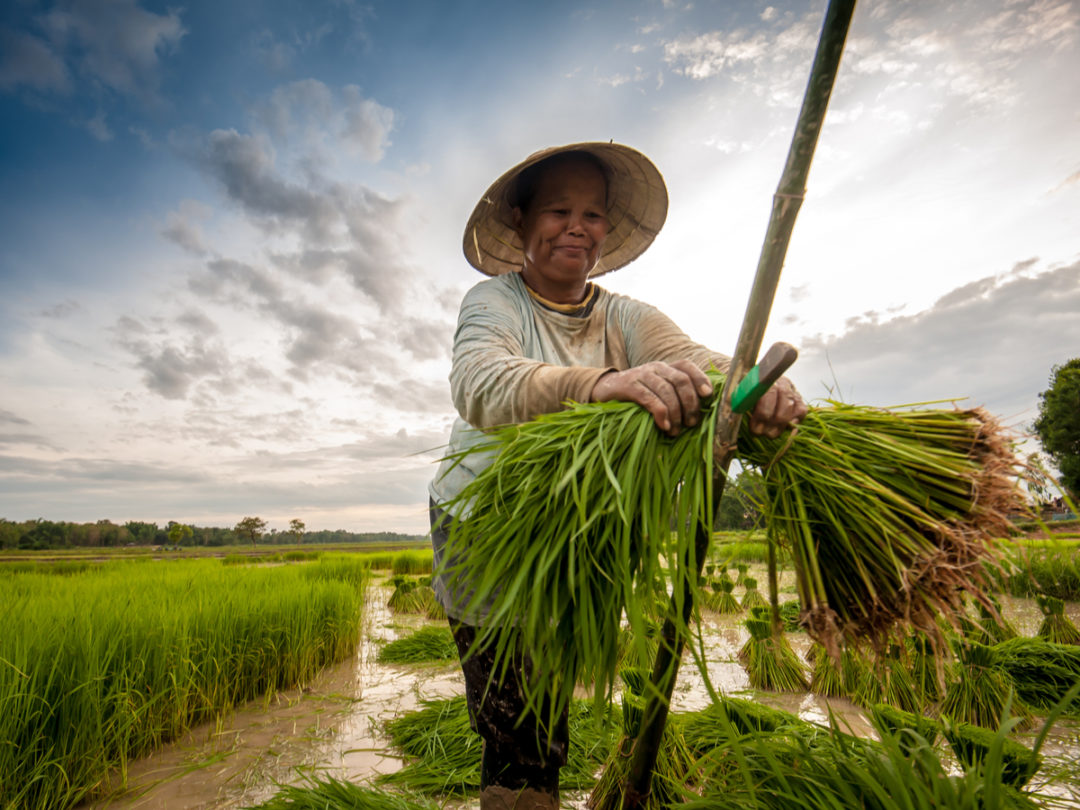
State-of-the-art technology for managing global supply chains is only now beginning to percolate down to the individuals who need it most: small farmers in developing economies.
When it comes to deploying systems for ordering, producing, tracking and paying for goods, much of the attention to date has been focused on larger companies and their Tier 1 partners. Meanwhile, smallholder farmers in regions such as Africa and Asia struggle to grow subsistence crops and, if they’re lucky, one or two cash crops for a limited marketplace.
The disadvantages that hamper the small farmer are many, according to Dan Iancu, associate professor of operations, information and technology at Stanford University’s Graduate School of Business. They include lack of access to formal banking, inefficiencies in resource usage, and limited information about best practices for tapping global markets.
Small farms, which are usually family-run, tend to lack digitized transactions and written contracts, relying instead on word-of-mouth processes. And despite the diminutive nature of their operations, they may be engaged in practices that carry long-term environmental and social consequences.
As a result, it’s hard to apply standard analytics to smallholder supply chains, said Iancu. He spoke at a recent conference on responsible supply chains at the Stanford graduate business school.
Some major global brands that rely on small farmers are working to right that imbalance. One early initiative to provide technology and innovative practices involves the production of palm oil in Indonesia. Participants include Unilever, the consulting firm Daemeter, the initiative called SAWIT (Smallholders Advancing With Innovation and Technology), the David and Lucile Packard Foundation, and Financial Access.
Palm oil is found in more than half of all packaged goods, as well as being an essential ingredient in biodiesel fuels. With 41 percent of production sourced from smallholders, “it’s a very invisible but ubiquitous commodity,” Iancu said.
Lacking guidance on modern production methods, many palm oil farmers resort to deforestation through burning. That creates serious air-quality problems in areas such as Southeast Asia. In addition, they must negotiate a complex supply chain, including a series of middlemen, mills and refineries.
The multi-partner initiative focused on the first couple of miles in the chain, beginning with the collection of data on some 3,000 farms. It also recorded the routes that trucks follow when middlemen pick up the fruit. (Every two weeks, a single tree products a 50-pound fruit bunch.)
With information in hand, the analysts began to digitize and reconcile key data on transactions, road segments and maps. Then they honed in on the initial delivery process. Farmers don’t get paid until the mill is paid by the refinery, Iancu noted. The goal was to reduce payment delays in order to boost productivity on existing farms, thereby reducing reliance on deforestation.
The participants also developed a platform to match farmers with the right middlemen, to create more efficient routes and reduce the number of empty trucks.
There’s plenty of work still to be done in the palm oil supply chain. “I’m a firm believer that analytics can make a difference,” said Iancu, “but we need more data and partners.”
Describing a project to increase supply-chain transparency in Zambia were Patricio Prini, global vice president of technology innovations with Anheuser-Busch InBev, and Ashish Gadnis, co-founder and chief executive officer of BanQu. The latter offers a blockchain application for individuals without access to traditional banking services.
The goal was to source 100 percent of the ingredients in Eagle Lager, a sorghum-based beer, from small local farmers. To achieve it, the partners launched a blockchain initiative for enabling supply-chain traceability and transparency.
Farmers were supplied with smartphones that can be used to confirm both proof of delivery and payment for their goods. Text messages confirm weight, quality and payout, with blockchain technology creating an immutable record of transactions across all participants.
Chain of custody is a serious problem in smallholder supply chains, said Gadnis, with the farmer often invisible to prospective purchasers. Now, the farmer — who is frequently the mother of the family — stays in the loop as goods move by truck to the factory. “If she didn’t get paid, the asset’s not released,” said Gadnis. “[She] has the ability to own, access, monetize and permission her data.”
Currently some 2,000 farmers are live on the platform, with 1,300 metric tons of product sold. The initiative began with barley and sorghum, although “any crop would work” with a blockchain and supporting smartphone, Gadnis said.
While technology is vital to the project, it’s no guarantor of success. Thousand of additional small farmers and hundreds of middlemen have yet to be included on the platform, and matching them up with big global brands can be a challenge.
“The brand has to be willing to understand the consequences of traceability,” said Gadnis. “That’s half the battle. It’s the climbing of Mount Everest every day.”







